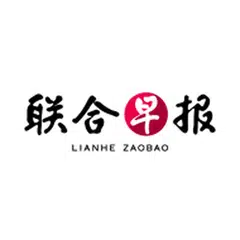Jack Ma's reappearance energises Chinese internet and investors: Will Alibaba rise again?
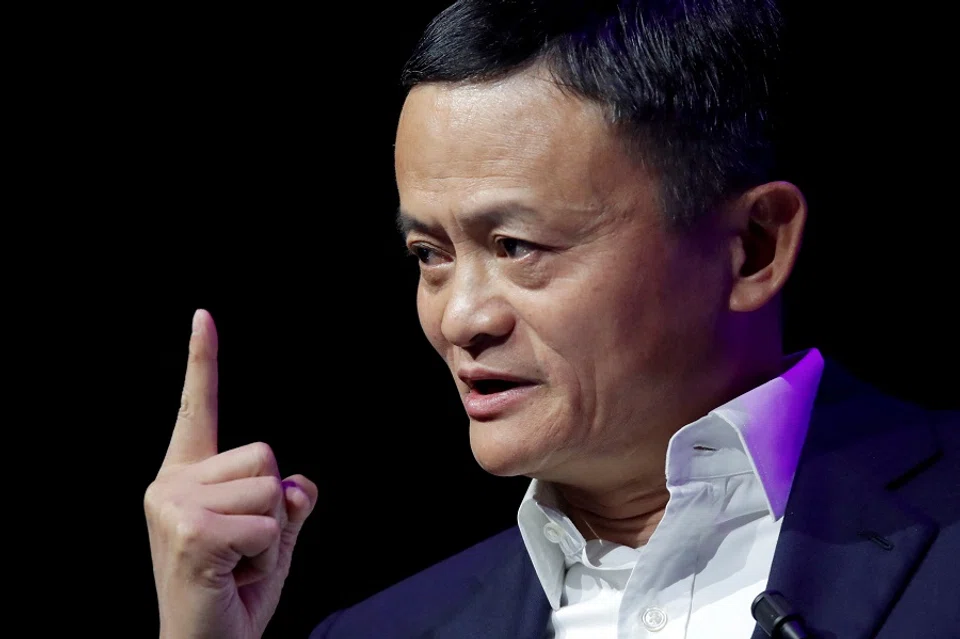
That man is back.
Each time Jack Ma makes a move, Chinese social media users express a mix of surprise, excitement and eagerness, as if convinced that "that man" will most certainly do something big whenever he strikes.
At a time when China's domestic and international markets are experiencing dramatic changes and e-commerce platform Alibaba's leading position is seriously threatened, Alibaba founder Ma posted an internal memo on the company's intranet titled "To Reform and Innovation" (《致改革致创新》) under his nickname Feng Qingyang.
He summarised the changes after a year of reforms as: "... not in pursuit of key performance indicators, but in a re-evaluation of ourselves and a return to prioritising customer value."
He recognised the series of changes introduced by the new management team comprising CEO Eddie Wu and chair Joe Tsai in the past year and stated that Alibaba has returned to a healthy growth track. Moving forward, Ma stressed the need for stronger reforms and to be more enthusiastic and proactive in changing itself.
"We have fallen behind because we forgot who our real customers are." - Joe Tsai, Chairman, Alibaba
The next three to five years
Chinese media reported that this is Ma's first lengthy sharing of the company's reforms, innovations and future prospects in the five years since he stepped down as chair of Alibaba's board in 2019. The internal memo immediately sent ripples through the industry and social media platforms.
Quoting people with knowledge of the matter, Huxiu (虎嗅) reported that, by releasing a memo at this point in time, Ma is not only lending his support to the new management team and stabilising company morale, but is also boosting morale and pointing to the next three to five years.
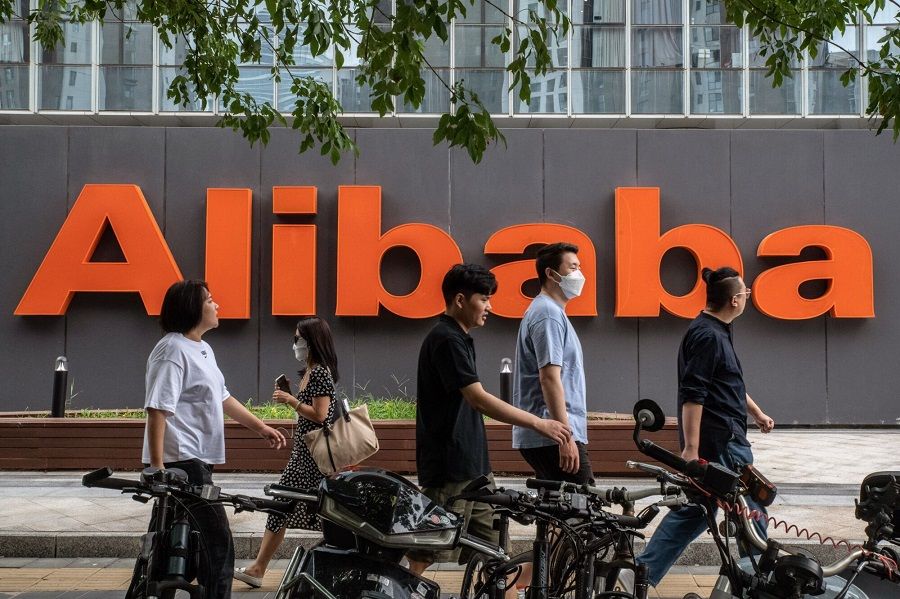
Ma sent out an internal memo affirming the company's reforms, echoing Tsai's remarks in a recent interview.
In an interview with the CEO of the Norwegian Sovereign Wealth Fund on 3 April, Tsai said, "We have fallen behind because we forgot who our real customers are." He even asserted that Alibaba has somewhat "stepped on our own foot" because its real customers are people who use its app to shop but Alibaba did not give them the best experience. After an internal review and evaluation, the first thing the company did was to acknowledge mistakes, while the second was to change the organisational structure.
The capital market has already punished Alibaba for its mistakes. Caixin reported that since 2020, Alibaba's stock price has plummeted, currently standing at a quarter of its 2020 peak. Its market capitalisation was even once temporarily surpassed by that of Pinduoduo, China's third largest e-commerce company. At the same time, while Alibaba's core business Taobao and Tmall Group still holds the largest market share in the country, it is being eaten away by Pinduoduo, Douyin and Kuaishou.
AI: keyword for an era of technological change
Notably, the remarks from both Ma and Tsai mentioned the keyword for an era of technological change: artificial intelligence (AI).

Ma said that three to five years is as long as a century in the internet sector, long enough for radical changes to occur. He opined, "The AI era has just arrived. Everything has just begun, and we are at the right moment!"
Tsai pointed out that having a good large language model (LLM) developed in-house is extremely important. He said, "The e-commerce business is one of the places where you can have the richest use cases for AI... For example, you can try something on using virtual dressing rooms... self-generate photos, product descriptions and things like that."
Alibaba has in the past year made changes to its organisational structure, and this is also closely linked to AI. A tech article on sohu.com analysed that since officially taking over from Daniel Zhang last September, Tsai has been making major changes across the board, from the business end and organisation strategy, to the appointment of senior executives.
With regard to business, Alibaba clearly defined the organisation's strategic focus and priority, focusing on the two core businesses of e-commerce and cloud computing. Under Zhang's leadership, plans to independently list Freshippo and Alibaba Cloud were halted.
Some analyses highlight that if the wave of artificial general intelligence (AGI) were to eventually become the fourth industrial revolution, then Alibaba Cloud would be considered Alibaba's most important asset. The decision to not let Alibaba Cloud spin off is also likely in consideration of this. As one of the two core businesses, cloud computing has cemented Alibaba's future to a degree.
E-commerce is their roots, while cloud computing and AI is the future for the entire tech industry, and could also be a key push factor for Alibaba to realise a major leap forward. - from an analysis in 36Kr
36Kr (36氪) carried an analysis that pointed out that by focusing on e-commerce business and anchoring themselves on cloud computing and AI, the future for Alibaba has been propped up, with more space for imagination. E-commerce is their roots, while cloud computing and AI is the future for the entire tech industry, and could also be a key push factor for Alibaba to realise a major leap forward. This is a clear and firm strategic route, and is most fitting for Alibaba's current developmental needs.
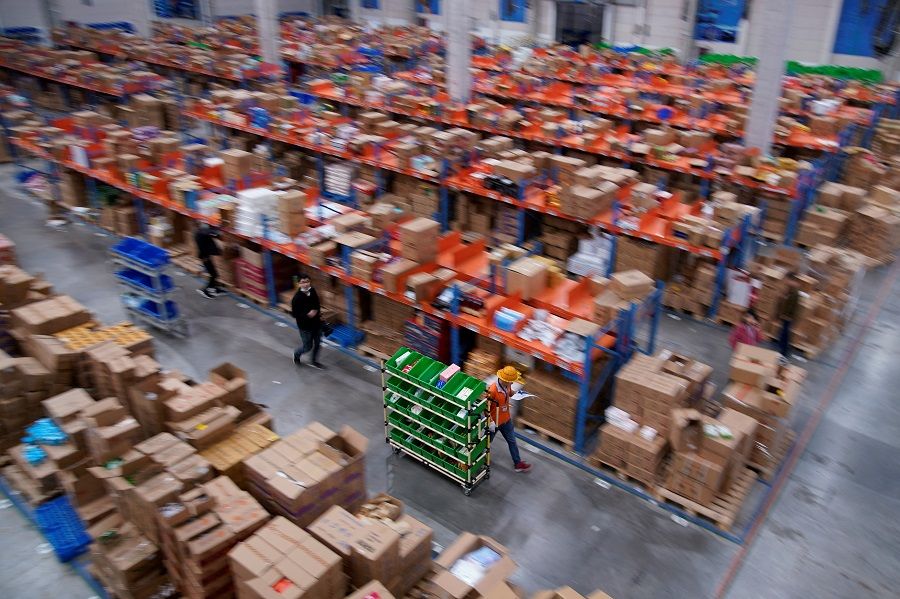
There are no successful businesses, only businesses that keep up with the times. Ma stressed that in the age of AI, Alibaba is right in the thick of it. Surrounded by competition from firms such as Pinduoduo and Douyin, will he be "that man" to lead Alibaba to face the AI wave and achieve a breakthrough in the battle of e-commerce platforms?
In 2020, after Ma publicly criticised China's financial regulatory controls, both his personal life and business saw changes. The Ant Group's IPO plans were halted, and the high-profile Ma also became more reserved, disappearing entirely from the public eye by the end of 2020.
It seemed that after that episode, Ma led a carefree and private life. He visited Japan, Spain and Thailand, and was spotted on a yacht, eating sushi, watching boxing matches, and even taking pictures with famous people from all over the globe, leaving behind records of his travels. Some even speculated that he had long migrated elsewhere, never to return to China.
During this period, media outlets were all still paying much attention to Ma's trail, with much of the information coming from repostings and sharings of posts and pictures from the internet, or unnamed sources.
The return of Jack Ma
In March 2023, Ma was photographed in Hangzhou, and following that Alibaba saw a series of changes. On 28 March 2023, Alibaba announced that it would break up into six major business groups, and undergo organisation revamp.
Under Alibaba, the six main business groups are Cloud Intelligence Group, Taobao and Tmall Group, Local Services Group, Cainiao Smart Logistics Group, Global Digital Commerce Group, and Digital Media and Entertainment Group, as well as other various businesses.
According to an article in Jiemian, in the fourth quarter of 2023, Ma increased his stake in Alibaba by approximately US$50 million, raising his ownership to over 4.3%, surpassing SoftBank to become Alibaba's largest single shareholder.
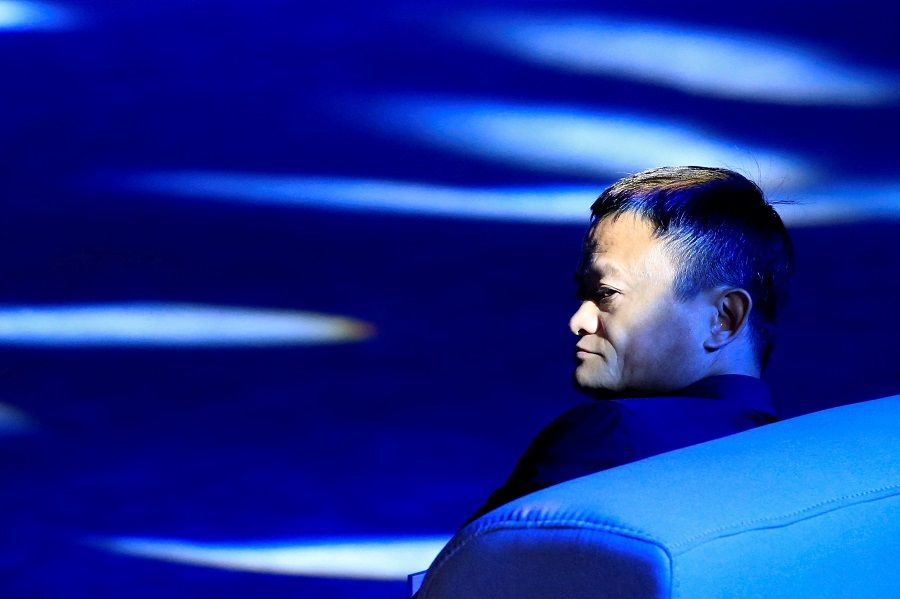
On 20 June 2023, Zhang announced that he would step down as Alibaba CEO and chair from 10 September 2023, to focus on his role as the head of Alibaba's cloud unit. Alibaba's executive vice-chair Tsai will take over as chair, while chair of Taobao and Tmall Group Eddie Wu will take over as Alibaba CEO concurrently.
The Paper reported that this strategic rearrangement could only be the work of Ma. On the evening of 10 September 2023, right on cue, Zhang announced his resignation as chair and CEO of the Alibaba Group, but unexpectedly also stepped down from his position at Alibaba Cloud.
The report suggests that since "returning to the battlefield after leisurely wandering", Ma is once again deeply involved in strategic decisions. Following his return to China, he has been keenly assessing the economic situation and the broader environment, implementing significant internal reforms while also operating outside of defined roles, serving more as a strategic guide. Michael Evans, president of Alibaba Group, said in a media interview in June 2023 that Ma cares "as much about this company today, as he did when he started".
Similarly, there was a significant shift in Alibaba's shareholder structure in 2023. According to an article in Jiemian, in the fourth quarter of 2023, Ma increased his stake in Alibaba by approximately US$50 million, raising his ownership to over 4.3%, surpassing SoftBank to become Alibaba's largest single shareholder. Amid capital pessimism towards Alibaba, Ma stepped forward, responding to external scepticism with action.
... who can lead the massive ship that is Alibaba through the storm? Many analyses assert that no one is more suitable than Ma, the patriarch figure.
Is Alibaba today like Microsoft during its low point?
Chinese economist and online celebrity Ren Zeping compared today's Alibaba to Microsoft during its downturn: "Although the difficulties are aplenty, it may also be the most hopeful moment."
Ren's Weibo post said that in 2012, Microsoft had just experienced a disastrous transition from desktop to mobile internet; its market value was surpassed by Google, its mobile operating system was losing out to Apple's iOS and Google's Android, and its acquisition of Nokia ended in huge losses, all while facing antitrust lawsuits.

At the time, Microsoft was facing severe challenges at every turn. However, looking back, 2012 was also an important moment of strategic transformation for the company, such as beginning to heavily invest in cloud computing, restructuring its management, promoting younger people within the company, and later investing in OpenAI.
Leading Microsoft out of its slump was CEO Satya Nadella, who strategically focused on cloud computing and AI, and achieved a remarkable turnaround. So, who can lead the massive ship that is Alibaba through the storm?
Many analyses assert that no one is more suitable than Ma, the patriarch figure. His public affirmation of reform and innovation has bolstered Alibaba's strong performance in the Hong Kong stock market, with the stock price reaching a high of 5.5% on 10 April, marking a new high since 14 March.
While Chinese media's description of "returning to the battlefield after leisurely wandering" may not be 100% accurate, Ma remains an important spiritual symbol for Alibaba even after retirement. As he once said, "Alibaba has never belonged to Jack Ma alone, but Jack Ma will always belong to Alibaba." His statements at critical moments serve as a guiding force.
This article was first published in Lianhe Zaobao as "马云回归携阿里迎战AI浪潮?".
